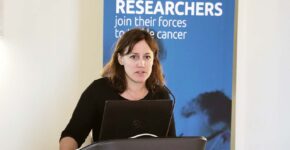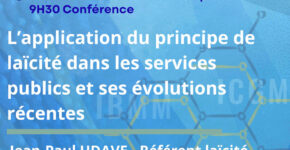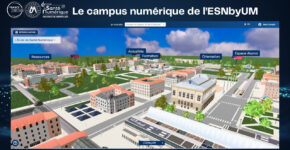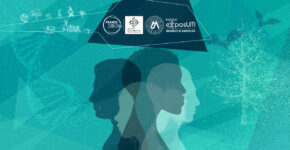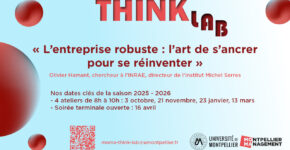Content type: Page
L’École de Santé Numérique de l’Université de Montpellier et de ses partenaires est un projet labellisé France 2030 dans le cadre de l’A.M.I. « Compétences et Métiers d’Avenir », le seul retenu au niveau national pour former tous les professionnels concernés par la Santé Numérique. C’est une initiative originale et innovante qui propose des formations initiales, professionnalisantes et en alternance dans le domaine de la santé numérique. Elle propose une approche multidisciplinaire et interdisciplinaire de la formation pour répondre aux enjeux de la Santé Numérique, autrefois appelée e-Santé. https://www.youtube.com/watch?v=5JE7BV7Z0DI Domaine en pleine expansion, la Santé Numérique peut se définir comme la rencontre entre le monde de la santé et le monde du numérique, rendue possible grâce à l’usage et au développement des nouvelles technologies de l’information et de la communication, pour accompagner les professionnels de santé dans leur pratique et la personne dans son parcours de soin. Elle permet de répondre à des enjeux sociétaux importants, comme la hausse des pathologies chroniques ou les déserts médicaux, et touche différentes compétences telles que les données de santé, la cybersécurité, l’IA, les outils numériques en santé, ou encore la télésanté. Sa pédagogie personnalisée, interdisciplinaire, et son campus numérique pensé comme un environnement d’apprentissage immersif, collaboratif et accessible à tous et à tout moment, incarnent l’engagement de l’École de Santé Numérique à former les professionnels de demain voués à évoluer dans un monde de plus en plus connecté. Objectifs de l’ESNbyUM Former massivement à la Santé Numérique les futurs professionnels du secteur sanitaire et médico-social, développer des expertises spécifiques pour les autres professionnels impliqués dans la santé numérique. L’ESNbyUM va former à la Santé Numérique : Les professionnels de santé et du médico-social Les spécialistes du numérique possédant une culture en santé Les directions et cadre-dirigeants de structures sanitaires et médico-sociales Les juristes possédant une culture en santé numérique Les spécialistes en charge des affaires réglementaires des Dispositifs Médicaux-Numériques Renforcer la cohérence disciplinaire en santé numérique
La Santé Numérique est un domaine complexe qui touche de nombreux professionnels aux expertises diverses et qui traite de thèmes aussi variés que les données de santé, les parcours de soin, la télésanté, les applications de santé mobiles, l’aide à la décision médicale ou la robotique d’assistance du patient. Cette diversité est au cœur de l’École de Santé Numérique qui relève le pari de former tous les professionnels touchés par la Santé Numérique en proposant notamment de mutualiser les ressources pédagogiques et ses formations dans un même espace. L’ESNbyUM propose même une UE « Projet Interdisciplinaire en Santé Numérique » qui permet aux étudiants de différents Master (Médecine, STAPS, Pharmacie, Sciences, IAE et Droit) de co-construire un dispositif médical numérique, de l’étape de réflexion à sa construction, chaque étudiant utilisant ses compétences pour mener le projet à terme. Proposer un accompagnement personnalisé
La santé numérique est un domaine qui requiert de former les futurs professionnels à de nouvelles compétences interdisciplinaires et à les préparer aux métiers émergents pour répondre aux enjeux d’aujourd’hui et de demain. Pour pallier ces besoins, l’ESNbyUM propose à ses apprenants une pédagogie, nommée « pédagogie de précision 6 P » qui est : Personnalisée pour une formation adaptée à chaque apprenant Préventive pour une formation réussie sans échec Prédictive, applicable dans la pratique future du métier Participative pour permettre à l’apprenant d’être acteur de son apprentissage Basée sur les Preuves en suivant une démarche scientifique Et centrée sur les Pratiques Animer l’écosystème de la Santé Numérique en Occitanie
En rassemblant des professionnels de différents horizons, des enseignants, des experts, des étudiants et des citoyens intéressés par la santé numérique, l’ESNbyUM, une école « hors les murs, renommée et incontournable dans tous les projets structurants visant la santé numérique, oeuvre, en synergie avec tous ses partenaires et acteurs du domaine du territoire, qu’ils soient académiques, établissements de soin et du médico-social, entreprises ou collectivités. Innover en pédagogie à travers son Campus Numérique
Afin de proposer à ses apprenants une expérience d’apprentissage unique, l’ESNbyUM a conçu son campus numérique, un projet ambitieux, véritable vitrine de l’École de Santé Numérique de l’Université de Montpellier et de ses partenaires. Cette plateforme numérique est constituée de cinq espaces : Un espace « Formation », sous forme d’un LMS Moodle, où sont mutualisées les ressources pédagogiques en Santé Numérique. Un espace « Orientation », agrémenté d’un chatbot IA, pour permettre à chacun de trouver sa formation en Santé Numérique Des espaces « Actualités » et « Ressources » pour se tenir informés des évolutions de la santé numérique Un espace « Alumni » pour interagir avec les anciens diplômés Un espace 3D immersif permettant de visiter les lieux emblématiques de la ville de Montpellier Cette plateforme, passerelle entre un univers immersif original et le monde bien réel de la formation, incarne la volonté de l’ESNbyUM de former nos étudiants, nos formateurs et les citoyens-patients à la Santé Numérique. Accéder au campus numérique Partenaires et soutiens de l’ESNbyUM Gouvernance Pr Maurice Hayot Le Comité des investissements stratégiques et structurants (COMIS), présidé par le Président de l’Université de Montpellier est l’organe de coordination stratégique du site qui s'intéresse au déploiement des dispositifs financés notamment par France 2030, dont le programme ESNbyUM. La Direction des programmes structurants de l’université de Montpellier (DPS), coordonne, sur le plan opérationnel et administratif, les actions de ces projets. Au sein du projet ESNbyUM, la responsabilité du projet a été confiée au Pr Maurice Hayot, PU-PH CHU de Montpellier et la coordination du projet au Dr Brigitte Couette, Chercheur Inserm. La gouvernance de l’ESNbyUM est constituée de plusieurs comités : un Comité d’Orientation Stratégique (COS), un Comité de Pilotage (CoPil), des Comités Pédagogie et Innovation (CPIs). Le COS participe à la définition des grandes orientations stratégiques, à la répartition des moyens et se prononce sur le plan d’actions proposé par le Directeur de l’ESNbyUM. Il est présidé par le Président de l’Université et inclut la Vice-Présidente « Formation et Vie Universitaire » et les membres du consortium. Le CoPil propose au COS les décisions stratégiques pour atteindre les objectifs du projet et veille à son bon déroulement : avancée, réalisation des objectifs, respect des délais, qualité et coûts financiers. Les missions des CPIs sont de proposer une stratégie de pédagogie et d’innovation pour permettre la mise en place et l’amélioration continue de la qualité des enseignements et de l’offre de formation de l’ESNbyUM.
